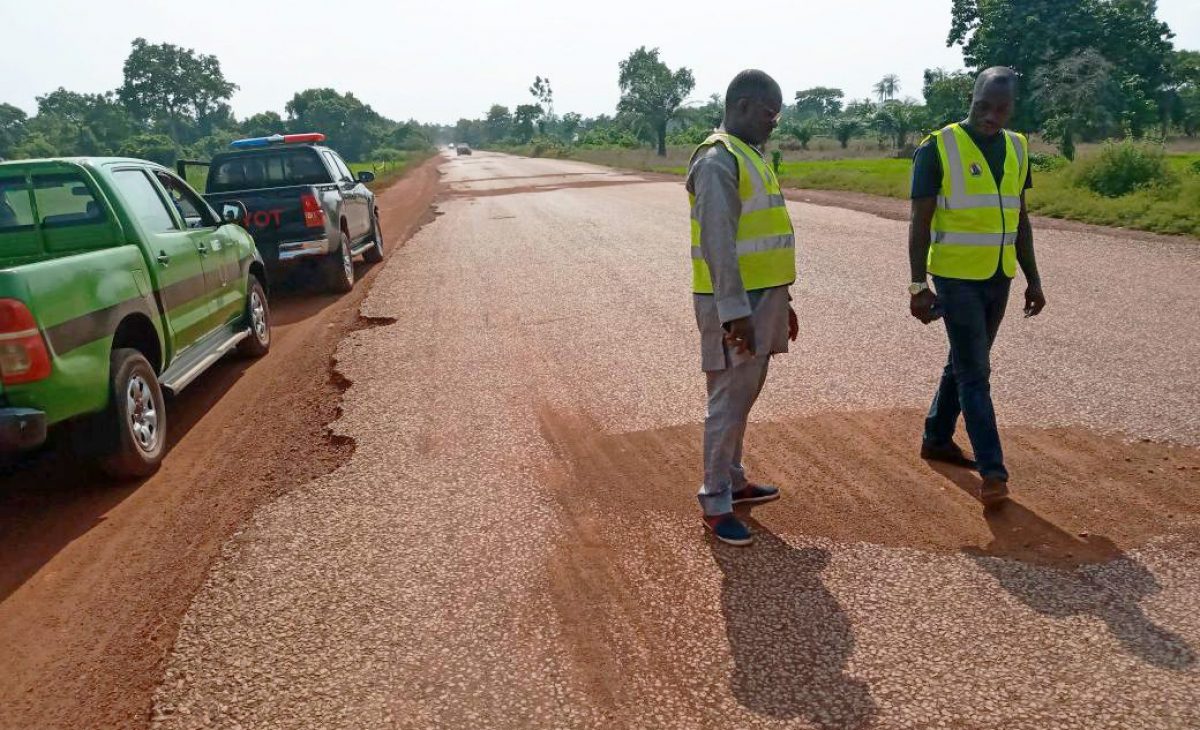Despite changes, pivots, and budget cuts UKNIAF’s Roads component consistently delivered its strategy through three work streams: Roads Asset Management System (RAMS), Reform, and Project Delivery. These work streams were established to provide a more effective rehabilitation and maintenance programme to change how money is spent on the Federal Roads Network (FRN). Importantly this component also built on a solid foundation.
With the closing of the Roads component, we took time to reflect on the lessons we have learned throughout its implementation. To this end, we drafted a Learning Brief (see link just below this page), but in summary, we think these lessons are important:
Involve your operational partners as early as possible
Learning from our experiences in NIAF1 and NIAF2, and in keeping with the UKNIAF objective of leaving a legacy of sustainable capacity within transformed institutions, the Roads component designed and implemented its three work streams hand in hand with its partner institutions. Rather than a top-down developmental approach, this was a facilitated, co-creation process.
These operational partners in our case, were not only colleagues from our partner institutions, but also local independent consultants, who would be able to continue to provide support to the institution, after the end of the project.
Start building capacity early and maintain momentum
If you are looking at changing the way an institution operates it is important to realise that this is a marathon and not a sprint. This is not just about changing the way certain operations happen on a day-to-day basis, but about inculcating these small, innocuous changes on an incremental basis. It starts from the first time you meet with your delivery partners and does not stop.

Secure and maintain political support
For a transformational institutional change, it is vital that the programme has support and cooperation, not only from those doing the work but also from those making the decisions and supporting the process. This process can be as simple as keeping these decision makers informed of the process, or as detailed as unpacking their strategic requirements and integrating these into your delivery, if possible.
It’s important to understand that there is no recipe for this. Each institution has its own dynamics and hierarchy, its own personalities, and its own pressures to deliver. As a delivery partner, you need to understand these nuanced differences and adapt your approach and methods appropriately.
You are not working in a vacuum, prepare to adapt
As with any programme, the external environment can adversely affect rollout, delivery and even impact. But with flexibility, sometimes these adverse circumstances can be turned to your advantage. The Roads component faced this challenge and turned it into an opportunity with the COVID-19 crisis, including going out and doing some of the work themselves, as a result of COVID-related challenges. Read Lessons Learnt on Roads Covid Response.
Start delivery as soon as you can
The earlier you move from concept to delivery, the better. Put something tangible on the table as quickly as possible. Don’t wait for complete knowledge or data sets or until you have all the data to present a comprehensive picture before acting. Instead, begin with pilots and understand that you might need to change direction. The Roads component started delivery with limited data on its data viewer and ironed out challenges and difficulties as more data became available.
We unpack each of these lessons in more detail, and others, in the Roads Consolidated Learning Brief.













